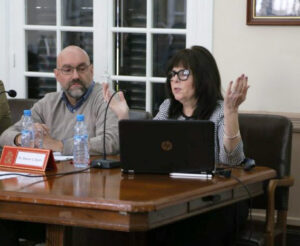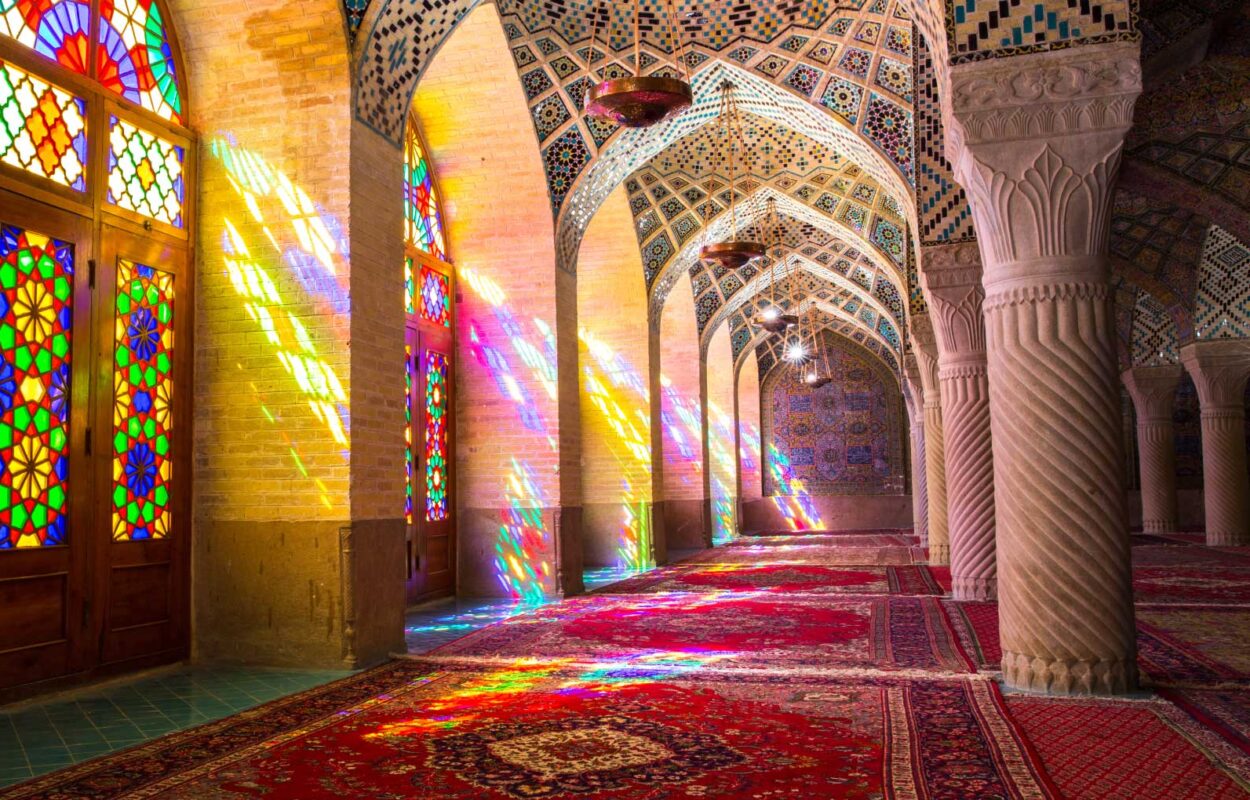
Sharon C. Smith and Michael A. Toler at the opening session of a seminar on Digital Documentation of Moroccan Cultural Heritage
This week Sharon C. Smith, PhD, founding Program Head of the Aga Khan Documentation Center at MIT (AKDC@MIT), and co-director of Archnet.org, will turn over the reins to Michael A. Toler, PhD, Archnet Content Manager, who will assume the role of Interim Program Head.
Smith established AKDC@MIT in 2011 when she came to MIT from the Harvard University’s Fine Arts Library. Since then the Center has not only provided outstanding support to the Aga Khan Program for Islamic Architecture at MIT and Harvard, but it has grown into a research and archival center with a significant and growing global reputation. Among the collections of AKDC@MIT are the archives of pioneering Iraqi architects Rifaat Chadriji, Mohamed Makiya, and Hisham Munir, as well as the recently received archive of the French architect and urban planner Michel Ecochard. The Center is also home to the archives of renowned scholars and curators of Islamic art and architecture such as Lisa Golombek, Marilyn Jenkins-Medina, and Yasser Tabbaa.
Smith worked with the Aga Khan Trust for Culture to build Archnet 2.0, launched in 2013, with a renewed emphasis on scholarship. Since that date, more than 100,000 new records have been published, including name authorities, site records, videos, images, and scholarly publications.
As AKDC Program Head, Sharon has built collaborative relationships with national and international institutions, and was the principle investigator on the Layer Cake project, a new tool for spatial and temporal mapping indicative of AKDC’s commitment to engagement in Digital Humanities.
According to Howard Silver, Head of Data and Specialized Services of the MIT Libraries, “AKDC’s accomplishments and success are the direct outcome of Sharon Smith’s vision, dedication and effort. Since Sharon arrived in 2011, the program has grown well beyond its originaal vision. It serves as an increasingly important resource for scholarly communities around the world. She has recruited a talented, productive and dedicated team who are making the Center’s rich collections increasingly accessible, and developing tools to allow the scholarly community to contribute to these growing collections. She leaves the Center with an outstanding team and strong foundation to continue on its path.”
For Smith, who leaves to accept a new position at another institution, the development is “bittersweet.” She notes, “Words cannot express how honored I was to be given such an opportunity as building a research center from the ground up; nor can they express how humbling it has been to work with the architects and scholars who donated their archives to ensure their accessibility and sustainability over time. None of this could have been accomplished without my dedicated and extraordinarily hardworking staff, the AKPIA faculty and staff, the students, the researchers, and the support of AKTC. Each and every person who crossed our threshold, exchanged ideas, or worked collaboratively on the vast array of collections AKDC holds, digital and analog, became a source of inspiration, motivating us all to work just that much harder to make AKDC the welcoming and intellectually stimulating research center it has become.”
In remarks delivered at the MIT Libraries farewell reception for Smith on July 31, Interim Program Head Michael Toler promised to continue to build on the accomplishments of his predecessor. Toler has been Archnet Content Manager since 2012, and comes to the position with extensive experience in Digital Humanities, including directing a inter-institutional collaborative of faculty, librarians, and instructional technologists exploring the use of technology-assisted collaboration in Middle Eastern studies and international education more broadly.
In an email to the staff of the MIT Libraries, Howard Silver stressed that “the MIT Libraries are fully committed to supporting both AKDC and AKPIA, and we look forward to working with faculty, partners and collaborators to support the Center’s continued progress.” MIT Libraries are currently considering the issue of long term leadership for AKDC@MIT.


